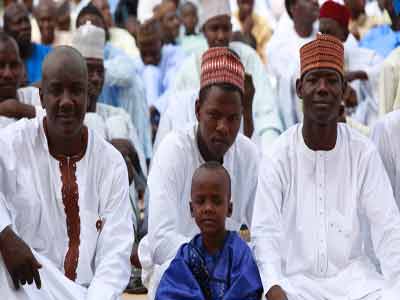
Interestingly, as the Marrakesh conference was holding, His Holiness Pope Francis, spiritual leader of the world’s 1.5 billion Catholics and other high-ranking leaders of global Christendom were at the Basilica of St Paul Outside-the-Walls, in the Vatican, to celebrate the religious service for the close of the Week of Prayer for Christian Unity. In his homily at the religious service attended by His Excellency Metropolitan Gennadios, representative of the Ecumenical Patriarchate of Constantinople, His Grace David Moxon, Personal Representative in Rome of the Archbishop of Canterbury and all the representatives of the different Churches and ecclesial communities, Pope Francis took a further step forward on the journey to the realization of full Christian unity, when he apologized and asked forgiveness for the mistakes of the past.
“As the Bishop of Rome and the Shepherd of the Catholic Church, I want to ask forgiveness and mercy for any behaviour on the part of Catholics towards Christians of other Churches that did not reflect the values of the Gospel. At the same time, I invite all Catholic brothers and sisters to forgive if, today or in the past, they have suffered offences from other Christians. We cannot erase what is past, nor do we wish to allow the weight of past transgressions to continue to pollute our relationships. The mercy of God will renew our relationships,” Pope Francis said.
Still determined to take more practical steps beyond mere rhetoric, on his apostolic journey to Mexico on February 12, 2016, Pope Francis stopped over at Havana, Cuba, for a private meeting with His Holiness Kirill, Patriarch of Moscow and All Russia. This meeting was the first in history since the schism of 1054 AD. The fraternal meeting resulted in the signing of a 30-paragraph joint declaration between the two pontiffs. Recognizing a lot of “common grounds” between the Catholic Church and the Orthodox Churches, the joint declaration urges both Catholics and Orthodox to “combine our efforts to give witness to the Gospel of Christ and to the shared heritage of the Church of the first millennium, responding together to the challenges of the contemporary world” (Joint Declaration, No. 7).
Within this highly positive religious atmosphere at the global level, the Marrakesh Declaration takes a bold step forward in interreligious cooperation, creating avenues for forging new bonds of peace, harmony and goodwill between Islam and followers of other world religions. This position has historic roots dating to the time of Prophet Mohammed and the Medina Charter. As noted in the Declaration’s preamble, “this year marks the 1,400th anniversary of the Charter of Medina, a constitutional contract between the Prophet Muhammad, God’s peace and blessing be upon him, and the people of Medina, which guaranteed the religious liberty of all, regardless of faith.”
For the Christian world, the Marrakesh Declaration is a welcome development. It is a positive sign of the renewed commitment of Muslim religious leaders at various levels to the project of reconciliation and peacebuilding. Issued at a time of heightened social hostility fuelled by violent religious extremism, widespread Islamophobia and the denial of rights, the Declaration recognizes that Muslims have suffered from the distortions of their religion by “criminal groups”, but also acknowledges that this situation has gravely affected non-Muslim populations. Faced with multiple crises afflicting humanity today, the Declaration calls for principled cooperation among all religious groups. Such cooperation, based on common grounds, “must go beyond mutual tolerance and respect, to providing full protection for the rights and liberties to all religious groups in a civilized manner that eschews coercion, bias, and arrogance.”
While reaffirming their “commitment to the principles articulated in the Charter of Medina, whose provisions contained a number of the principles of constitutional contractual citizenship, such as freedom of movement, property, ownership, mutual solidarity and defence, as well as principles of justice and equality before the law;” the Declaration charged “Muslim scholars and intellectuals around the world to develop a jurisprudence of the concept of ‘citizenship’ which is inclusive of diverse groups. Such jurisprudence shall be rooted in Islamic tradition and principles and mindful of global changes.” Herein lies the challenge of bringing a religion of 7th-century origin to come to grips with 21st-century realities.
The Declaration also had words of exhortation for Muslim educational institutions, politicians and decision-makers, the educated, artistic and creative members of Muslim societies, and various religious groups. Raising awareness of the rights of religious minorities, confronting all forms of religious bigotry and degeneration of what people hold sacred, restoring shared trust and rebuilding broken relationships topped the challenges placed at the doorsteps of these different social actors. I believe that these frontline Muslim scholars need the principled support of all people of faith and no faith, in their commitment to make the world a better place. The pressing question now is: how do we translate the lofty ideals contained in the Marrakesh Declaration into concrete practical milestones?
• Ojeifo is a Catholic priest of the Archdiocese of Abuja.



